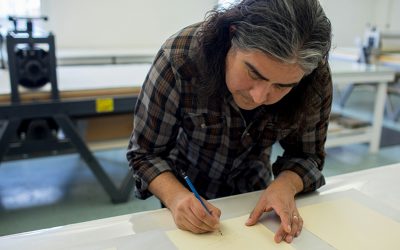Walter A. Clark
Date:
Thursday March 23, 2017
Time and Location:
2:00-3:30pm, Waters Room, Zimmerman Library
Title:
Spain the ‘Eternal Maja’: Goya, Majismo, and the Reinvention of Spanish National Identity in Granados’s Goyescas.
Description:
This talk will explore the influence of artist Francisco Goya (1746-1828) on one of the greatest masterpieces of Spanish music, the Goyescas suite for solo piano by Enrique Granados (1867-1916). Goya and Granados helped redefine the Spanish nation during a period of imperial decline and culture florescence ca. 1900.
 Biography:
Biography:
Walter Aaron Clark is a professor of musicology and director of the Center for Iberian and Latin American Music at the University of California, Riverside. He is the author of groundbreaking Oxford biographies of Isaac Albéniz, Enrique Granados, and Federico Moreno Torroba, and he is currently conducting research on a biography of Joaquín Rodrigo. In recognition of his contributions to the study and promotion of Spanish music and culture, King Felipe VI of Spain conferred on him the title of Comendador de la Orden de Isabel la Católica (Commander of the Order of Isabella the Catholic), a Spanish knighthood.
Sponsors:
The University of New Mexico Department of Music, the Latin American and Iberian Institute, and the Center for Southwest Research.
Jacobsen signs pre-completion contract for “The Creative Ethnographer’s Notebook”
Jacobsen signs pre-completion contract for "The Creative Ethnographer's Notebook" (co-authored with Melisa Cahnmann-Taylor) a book for artists, ethnographers and qualitative researchers. How and when do anthropologists, educators, sociologists and other social...
Pulitzer winning alumnus Raven Chacon to debut new composition, perform
Pulitzer winning alumnus Raven Chacon to debut new composition, perform Tickets available for performances in Santa Fe, Albuquerque By Mary Beth King August 11, 2022 Pulitzer Prize winning Diné composer and sound artist Raven Chacon, who earned his Bachelor of Arts...
The American Prize in Vocal Performance—Women in Art Song and Oratorio, 2022 Winner
The American Prize National Nonprofit Competitions in the Performing Arts, David (Volosin) Katz, founder and chief judge, is honored to announce the winners, runners-up, and honorable mentions of The American Prize in Vocal Performance—women in art song and oratorio,...



